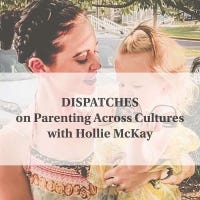When natural disasters like hurricanes, wildfires, or tsunamis loom, or when planned military bombing campaigns are imminent, authorities often issue evacuation orders to save lives. However, despite the clear and present dangers, many people choose to stay behind. Understanding the reasons for this reluctance can provide valuable insights into human behavior under stress and help improve future emergency responses.
Psychological Factors: The Power of Normalcy Bias
One of the most potent psychological reasons people don’t evacuate is the *normalcy bias*—the tendency to underestimate the likelihood or impact of a disaster. People often believe that things will remain as they have always been, leading them to downplay the severity of warnings. If they’ve survived past storms or crises without much trouble, they’re more likely to believe they can handle it again.
This mindset creates a dangerous illusion of control, where individuals convince themselves that the worst won’t happen to them. For planned bombings, particularly in conflict zones, people may normalize the threat, believing they’ll be missed or that it won’t hit close to home. This bias prevents them from taking life-saving actions until it's too late.
Fear of Looting and Property Loss
For many, evacuating means leaving behind homes, businesses, and possessions they've worked a lifetime to accumulate. In the face of disasters or bombing campaigns, the fear of looting or damage can outweigh the perceived risk of staying. People worry that their homes will be broken into or destroyed if left unguarded, especially in areas where law enforcement may be stretched thin during a crisis.
This is particularly true in conflict zones, where evacuation can mean abandoning businesses, livelihoods, or entire communities. In some cases, residents fear that leaving may result in permanent displacement or losing legal rights to property upon their return.
Mistrust in Authorities
Mistrust in government and local authorities is another major reason people ignore evacuation orders. In some cases, past experiences with ineffective or corrupt leadership have eroded public trust, leading residents to question whether the warnings are genuine or overblown. People may also suspect that evacuation orders serve other interests, such as political maneuvering or covering up inadequate disaster preparedness.
Additionally, in conflict zones, civilians may fear that evacuating could leave them vulnerable to exploitation, abuse, or indefinite displacement in refugee camps, which they perceive as even riskier than staying.
Social Ties and Cultural Beliefs
Many people choose not to evacuate due to strong social ties and cultural beliefs that prioritize community and family. For some, the decision to stay behind is driven by a sense of responsibility toward elderly family members, neighbors, or pets who may be unable to evacuate. The idea of abandoning loved ones in a time of crisis can feel unconscionable.
In certain cultures, there’s a deep attachment to place—land, homes, and ancestral property hold significant emotional and symbolic value. For these individuals, staying behind is an act of loyalty to their heritage and identity, even if it puts them at risk.
Economic Constraints
Evacuating is often more challenging for low-income individuals and families. Without reliable transportation, access to safe shelters, or the financial means to sustain themselves away from home, many people feel they have no choice but to stay put. For them, evacuation might mean being stranded without the resources to survive once they’ve left.
In war zones, civilians may lack the financial means to flee or the connections to relocate to safer areas. In these situations, the cost of evacuation can be so prohibitive that people feel trapped in dangerous environments.
Logistical Barriers
In moments of crisis, logistical barriers like fuel shortages can become life-threatening obstacles for those attempting to evacuate. When disasters strike, whether due to bombings or natural catastrophes, the demand for essential resources like gas skyrockets, often leading to shortages at the worst possible time. Many people, already panicked, find themselves unable to secure enough fuel to make the full journey to safety. As a result, some are forced to make heartbreaking decisions: they may begin their evacuation only to realize they don’t have enough gas to reach their destination, forcing them to turn back or remain stranded on dangerous, exposed roads.
Without sufficient fuel, vehicles may break down or stall in areas with no immediate help available, leaving families vulnerable to worsening conditions, whether it be rising floodwaters, fires, or continued shelling. For some, the fear of being stuck in an unfamiliar or unsafe place without the means to escape leads them to stay in their homes, even in direct danger zones. This combination of limited mobility and dwindling resources can have devastating consequences, as those left behind become increasingly isolated and exposed to the full force of the crisis with no viable way out.
Conflicting Information
Mixed messages from government agencies, media outlets, and social networks can create confusion, leading to inaction. In the midst of a crisis, people may receive conflicting information about the timing, severity, or nature of the threat, making it difficult to decide what course of action is best.
For example, during natural disasters, some news outlets may downplay the risk, while others emphasize worst-case scenarios. In military situations, propaganda or misinformation can cause uncertainty about whether the bombing campaign will actually take place or whether civilians will be targeted.
Perceived Inconvenience and Overconfidence
For many people, the perceived inconvenience of evacuation can be a deterrent. Leaving home can disrupt daily routines, require extended time away, and create logistical challenges for families with children, elderly members, or pets. Some may gamble that they can "ride out" the storm or bombing campaign, overestimating their own preparedness or resilience.
For those who’ve lived through multiple warnings in the past without experiencing real harm, a sense of overconfidence can develop. This “cry wolf” effect makes them less likely to take future warnings seriously, even if the risk is more substantial.
The decision not to evacuate in the face of natural disasters or planned bombing campaigns is influenced by a complex web of psychological, social, economic, and cultural factors. For emergency planners, understanding these motivations is crucial for improving public safety messaging and creating more effective evacuation protocols. Efforts to build trust in authorities, provide clear and consistent information, and address the unique needs of vulnerable populations could save countless lives in future crises.
FOR EXCLUSIVE GLOBAL CONTENT AND DIRECT MESSAGING, PLEASE CONSIDER A PAID SUBSCRIPTION TO THIS SUBSTACK TO HELP KEEP INDEPENDENT, AGENDA-FREE WRITING AND JOURNALISM ALIVE. THANK YOU SO MUCH FOR YOUR SUPPORT.
For speaking queries please contact meta@metaspeakers.org
For ghostwriting, personalized mentoring or other writing/work-related queries please contact hollie@holliemckay.com
Follow me on Instagram and Twitter for more updates and subscribe to my new podcast
DISPATCHES ON PARENTING ACROSS CULTURES
Get Links to the show across all podcast platforms
Order The Dictator’s Wife and Other Books… Click to Purchase Here






I found this article very helpful. I don't remember hearing any one else cover these topics. It helps us understand why people can't or won't evacuate. It's heartrending to think about people living in a war zone and not being able to evacuate because they don't have the financial means and/or fuel is unavailable.